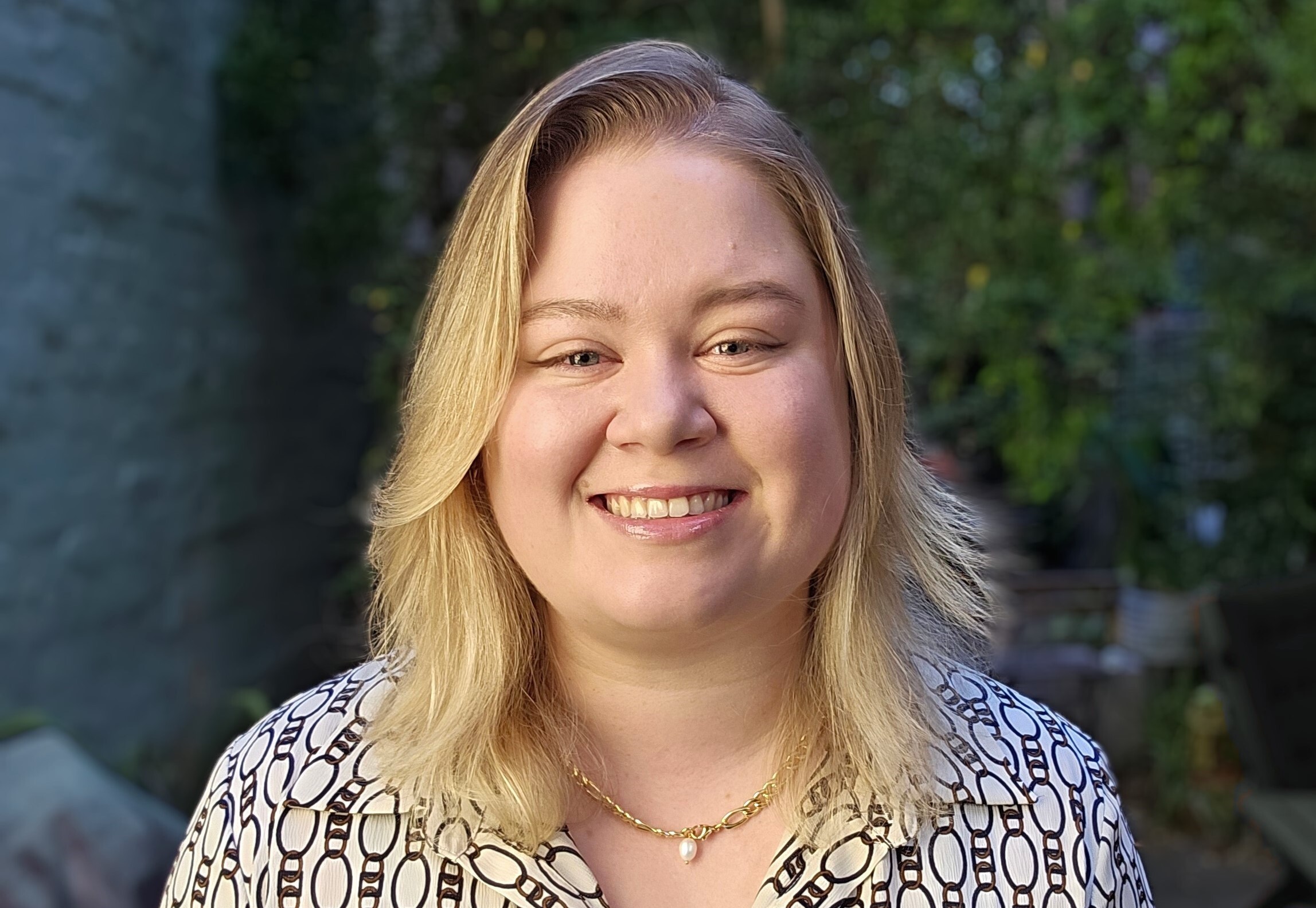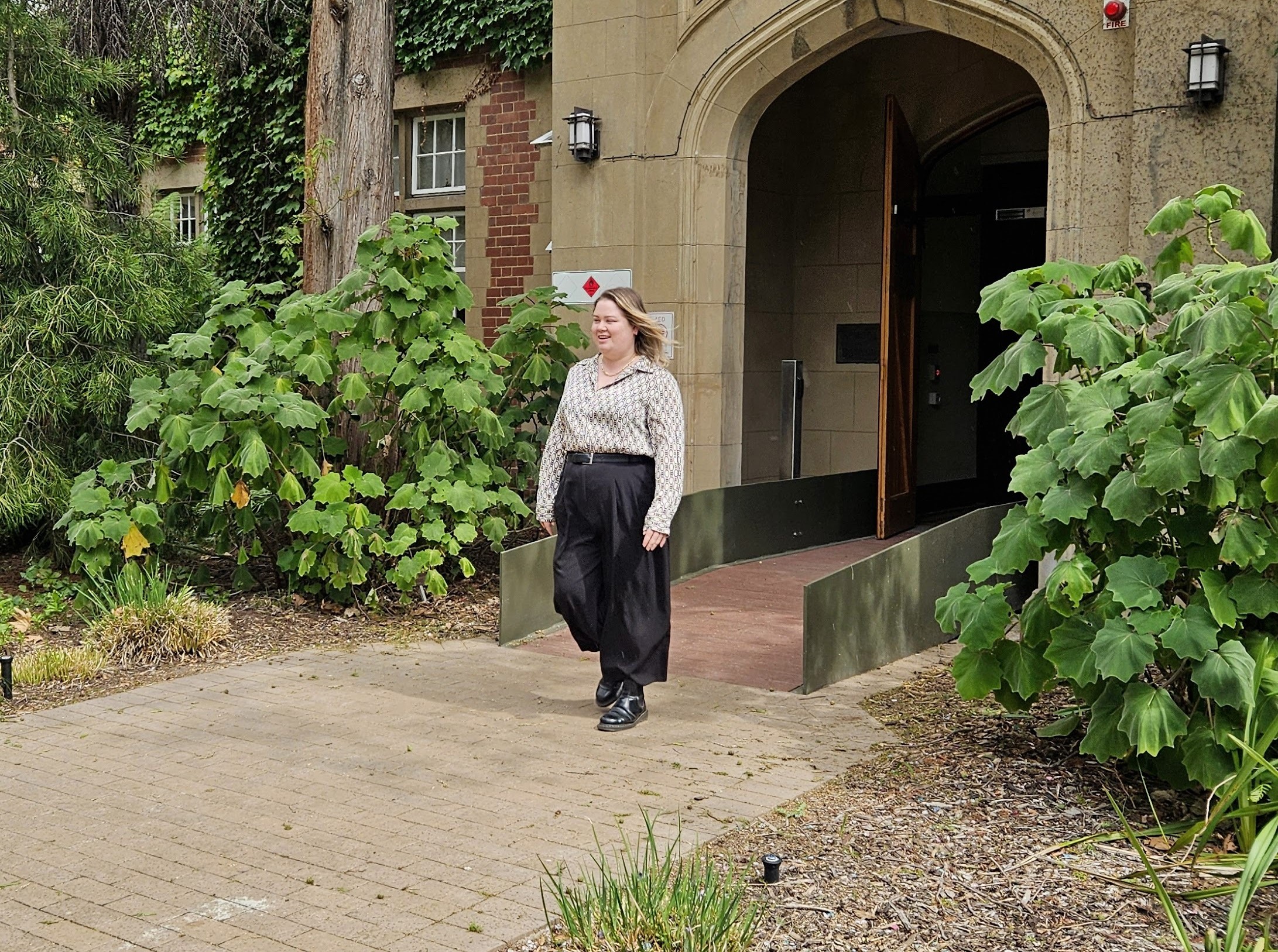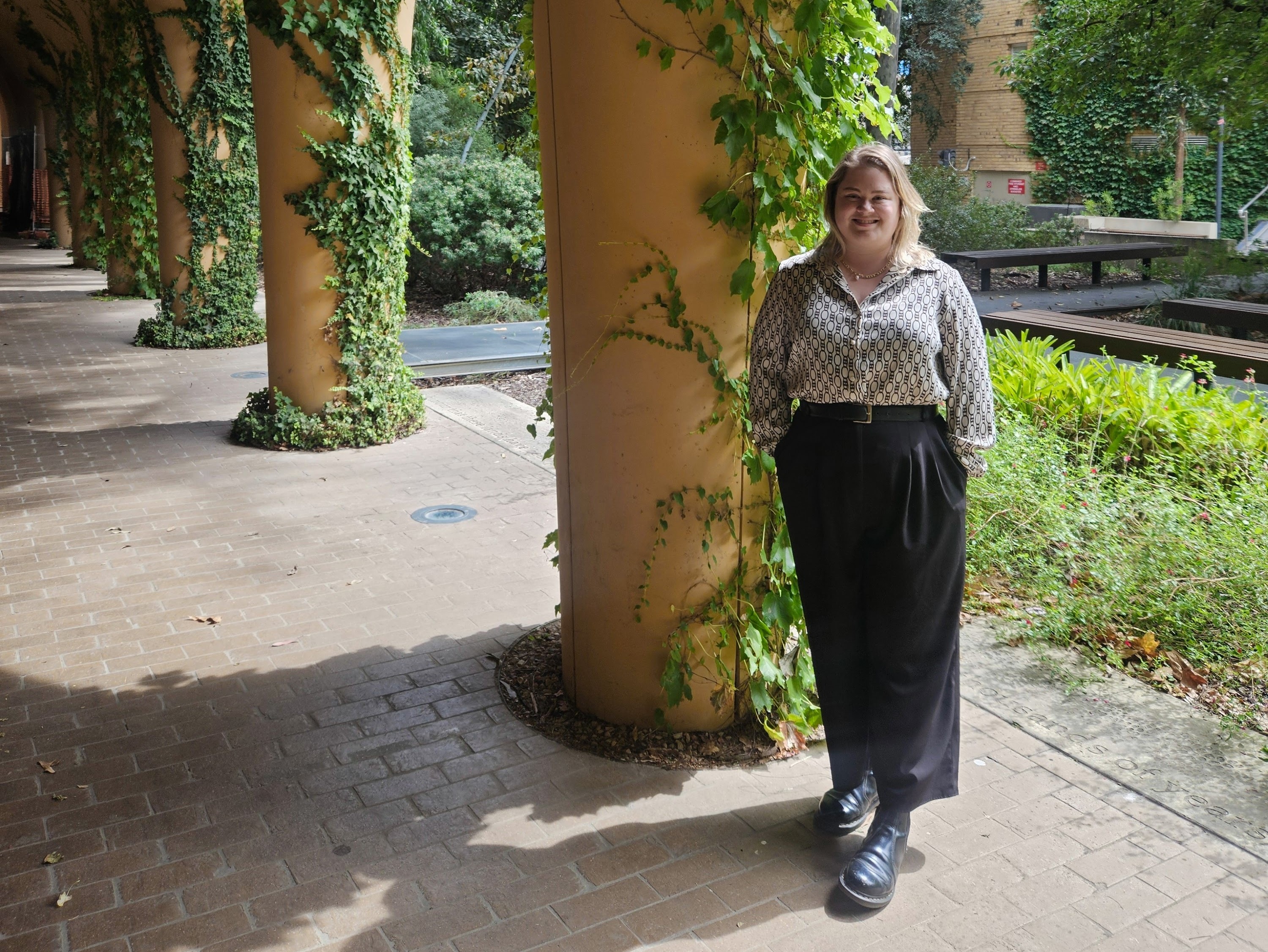Julia Hall hopes to become the first person in her family to complete a PhD. Her research has helped uncover how the pandemic affected children’s development.

Children in the 21st century face increasingly difficult and compounding challenges.
“For children, who grow so rapidly and have sensitive periods of development, the pandemic disrupted their daily lives to an extent that hasn't really been seen before or researched before,” says PhD candidate Julia Hall.
As Julia was finishing her masters in educational psychology at the University of Melbourne, her supervisor Associate Professor John Quach received a grant with funding for a PhD scholarship.
The grant was for the Minds@Play project, which looks into how mindfulness programs in primary schools could improve young students’ lives. He offered it to Julia.
“I've obviously liked being at a university. I'd already been to several across nine years. I couldn't really imagine not continuing to learn new things,” Julia says.

“I just knew if I went and did practice, I probably wouldn't come back.”
And completing a PhD would be a feat that nobody in Julia’s family has yet achieved. She grew up in rural Queensland.
“Dreaming of going to university – or even going to Melbourne – is pretty outrageous when you're in the middle of the desert and your school has 20 people in it,” she says.
So Julia seized the chance to continue to a PhD in Education. For Julia, psychology practice and research are both opportunities to help the community – but at different scales.
“If you're going into practice, you want to make a change on an individual level. You're looking to impact your community in the area you live. But if you go into academia, you're looking to impact the whole community,” she says.
Transitioning from a postgraduate student to a graduate researcher took her some time.
“It can be overwhelming in the beginning. But first you get used to the new environment and then you start contributing to it – and before you know it, people are getting excited by what you're doing,” she says.
“I've always treated it as a nine-to-five job. A PhD becomes your whole life at some point where you can be thinking about it when you wake up and when you go to bed. Adding some structure can really help keep you on top of your health and wellbeing personally.”

Julia’s data collection in schools began in March 2020. The timing became an opportunity to study children’s development over the course of a health crisis.
“It's nice to see how research is implemented – because otherwise as a student you just read about it in a paper. Actually doing it is really fun,” Julia says.
“We've got quite a unique data set of having these kids right as they're entering school, right before anyone had felt any kind of COVID-19 restrictions.”
Parents reported that younger children, who had never been to school, didn’t always realise that anything was amiss. But older primary school children struggled. As did families in lower socioeconomic areas.
Now nearing the end of her PhD, Julia is focusing on synthesising her research into an 80,000-word thesis. She will also produce academic journal articles, available to participating schools. Her findings can be used to help current students as well as inform future student wellbeing.
Networks built during a PhD can bridge countries
Julia has supplemented her PhD scholarship by working as a research fellow for Professor Keith McVilly. Professor McVilly and co-workers produced reports to the NDIS Quality and Safeguards Commission on how best to provide positive behaviour support for people with disabilities.
Julia’s role was to turn these reports to the Commission into academic outputs – peer-reviewed journal articles. This work exposed Julia to new areas of research and expanded her network. She gained insight into working as an academic.
“Everyone that I've met is a dream to work with, and having good people around you helps open doors,” Julia says.
She is hoping to pursue a career as an academic after completing her PhD.
“One of my dreams is to go to Europe or the UK and make a name for myself in the international academic community. I've always wanted to live and work in another country,” she says.
The academic community is smaller than people realise, Julia says. And that makes it easier to jump between countries. All you have to do is find a lab researching your area overseas.
“Career-wise, completing a PhD gives you experience in such a wide range of areas, whether it's critical thinking, publications, management, teamwork – the list goes on.”
Learn more
Doctor of Education Explore all our courses